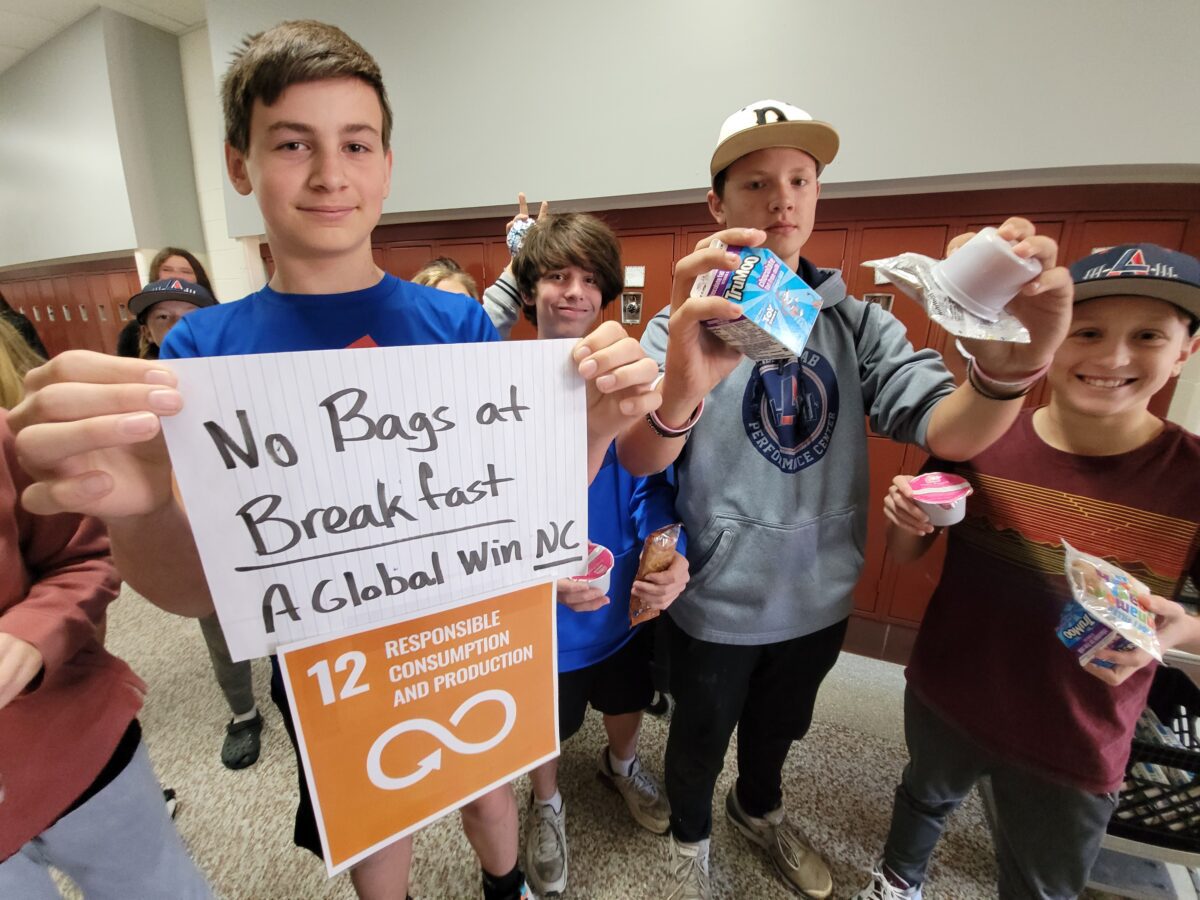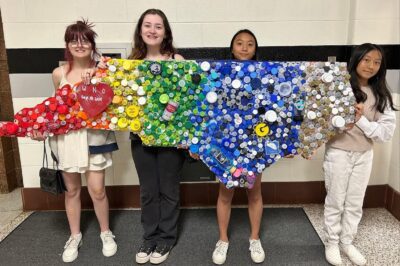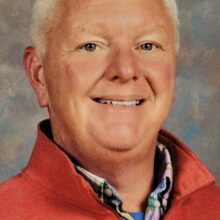
Big dreams. Global impact. Local action. When Heritage Middle School partnered with Participate Learning, and I started my journey as a Global Leaders teacher, these three things took over my mind. In collaboration with Maggie Murphy, our Global Leaders strategy coach, we started dreaming big about how this framework could impact students schoolwide. I was inspired by the efforts of my students who had just begun collaborating on how the United Nations Sustainable Development Goals (SDGs) could affect the Heritage Middle School (HMS) community and beyond.
Soon after, Murphy and I began planning for an upcoming conference. What happened in the following weeks is a testament to not only the power of collaboration but also to the impact students can have when taking action on an issue that is both local and global.
I first heard the expression, “Global is local, and local is global,” in a presentation given by Participate Learning Director of Partnership Development Freebird McKinney, through the Dudley Food Center’s Rural Teacher Leadership Network (RTLN) western cohort. My main takeaway was that any action in your local community that aligns with the SDGs can have important global consequences. With this global lens, I was inspired to identify a way in which my students can make a difference in the world by focusing on a local issue that will initiate a needed and powerful change at HMS.
Immediately, my mind went to the single-use plastic bags used to distribute breakfast in the classroom. They have been distributed this way since HMS began both breakfast in the classroom and second-chance breakfast a few years ago. Then I noticed Erik Bathe, one of the HMS eighth-grade math teachers, collecting these bags to be repurposed by the school’s art department for storage and projects. It was Bathe’s actions that lit a pathway for me — a pathway to global change through local action.
On September 25, my homeroom was the first to follow Bathe’s lead and to take action by collecting 22 breakfast bags. By the next day, the entire eighth grade was on board with recycling the bags.
It was at that point Murphy and I began to collaborate daily on how to align the SDGs to the bag initiative. I then introduced my students to the SDGs by creating an SDG bank that helped them apply their academic learning to the real world. Our new breakfast bag project aligned perfectly to SDG 12: Responsible Consumption and Production. The developing change-makers in my classroom also recognized that their new project also addressed SDG14: Life Below Water. By the first week in October, my students had produced an instructional video connecting to SDG 12 that was pushed out to the entire school. The impact of this was incredible. In collaboration with the HMS Interact Club, we inspired students in all three grade levels to start collecting bags within two weeks.
Murphy and I continued strategizing and quickly connected with a local partner, Simply Green Recycling, owned by former HMS students. Simply Green took this even further by connecting the project to global partner Trex, who uses a proprietary process to downcycle the bags into manufactured outdoor lumber.
Students began questioning school and community practices even further. Students started asking why they needed the bags in the first place, a topic that resonated with educators from around the state when I presented at the NC AIM conference in October.
I reached out to administrators and teachers around Burke County and discovered through Dillon Sain, Patton High School Principal and the BCPS Principal of the Year, that his students do not use plastic bags at breakfast. If Patton High School could operate their breakfast program without these bags, Murphy and I knew that HMS could do the same — and that the students could initiate a policy change within their school community. And if they could bring about such a change locally, they would soon realize the power they can have as agents of change, not only in Burke County today but around the world in the future.
On November 2, 2023, the single-use zipper bags being used at breakfast were eliminated through collaboration with Lynn Dodd, HMS Cafeteria Manager, and Ginger Stinson, HMS principal. Dodd indicated that discontinuing the use of the bags was not simply a good way to address the issue of caring for our environment and planet, but it was also a smart financial move in terms of the cafeteria budget. A perfect example of how local is global and global is local when it comes to action, impact, and change.
Murphy and I also discovered an EdNC article by reporter Laura Browne, “Governor announces funding to expand breakfast programs in N.C. public schools.” The article highlights Governor Roy Cooper’s actions to provide $1.4 million in federal funds to support North Carolina public schools in expanding student breakfast programs. Although thrilled with the breakfast expansion in the classroom, Murphy and I could not help but notice the plastic bags used to distribute the breakfasts in the article’s pictures.
In their new role as global leaders and global citizens, it came as no surprise that upon reading the article, my students immediately noticed the consumption of plastic bags. They dove into a discussion about how they could expand their sphere of global change beyond the walls of our school. On Wednesday, November 8, Murphy and I, along with BCPS instructional coaches, HMS staff, and a team of retired educators, converged in my classroom to hold a writing workshop so the students could draft a letter to Governor Cooper, which was delivered on November 9th, the day the Governor proclaimed Global Engagement Day in North Carolina.
In this letter, students communicated their appreciation for expanding breakfast in the classroom, shared their global journey, and invited the governor to observe their plastic-bag free breakfast program at Heritage Middle School. This writing activity engaged students in a way that allowed them to use their voices to potentially influence the whole state.
This win for local change with global impact started with a classroom, expanded to a school and community, and may help draw attention to a much-needed reevaluation of how North Carolina schools consume single-use plastics. Most importantly, students from a rural western North Carolina middle school now know that they can and will change our world for the better.
Behind the Story
ChatGPT was used to standardize verb tense throughout the article.
Recommended reading


